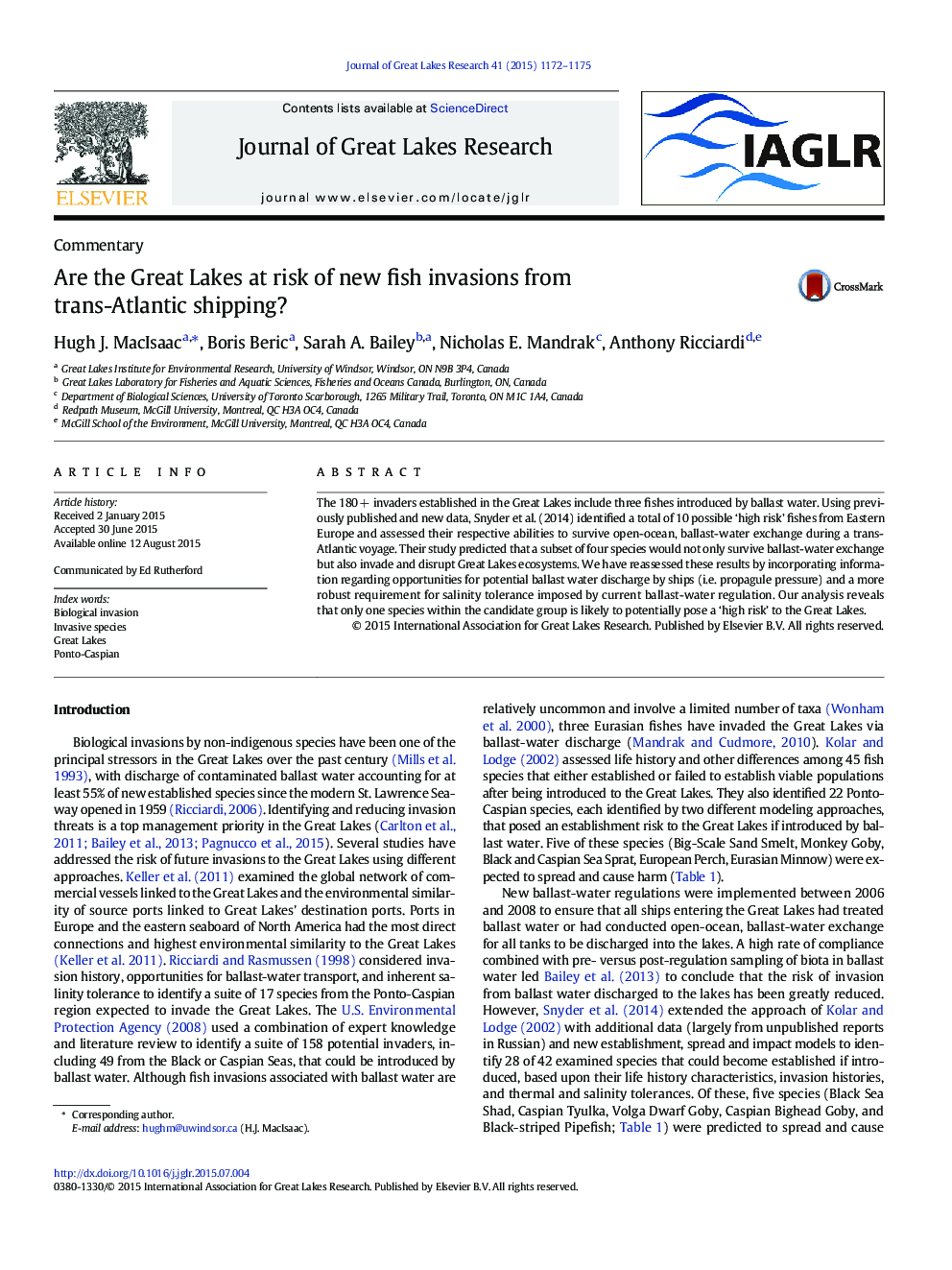| Article ID | Journal | Published Year | Pages | File Type |
|---|---|---|---|---|
| 6304877 | Journal of Great Lakes Research | 2015 | 4 Pages |
Abstract
The 180Â + invaders established in the Great Lakes include three fishes introduced by ballast water. Using previously published and new data, Snyder et al. (2014) identified a total of 10 possible 'high risk' fishes from Eastern Europe and assessed their respective abilities to survive open-ocean, ballast-water exchange during a trans-Atlantic voyage. Their study predicted that a subset of four species would not only survive ballast-water exchange but also invade and disrupt Great Lakes ecosystems. We have reassessed these results by incorporating information regarding opportunities for potential ballast water discharge by ships (i.e. propagule pressure) and a more robust requirement for salinity tolerance imposed by current ballast-water regulation. Our analysis reveals that only one species within the candidate group is likely to potentially pose a 'high risk' to the Great Lakes.
Related Topics
Physical Sciences and Engineering
Earth and Planetary Sciences
Earth and Planetary Sciences (General)
Authors
Hugh J. MacIsaac, Boris Beric, Sarah A. Bailey, Nicholas E. Mandrak, Anthony Ricciardi,
